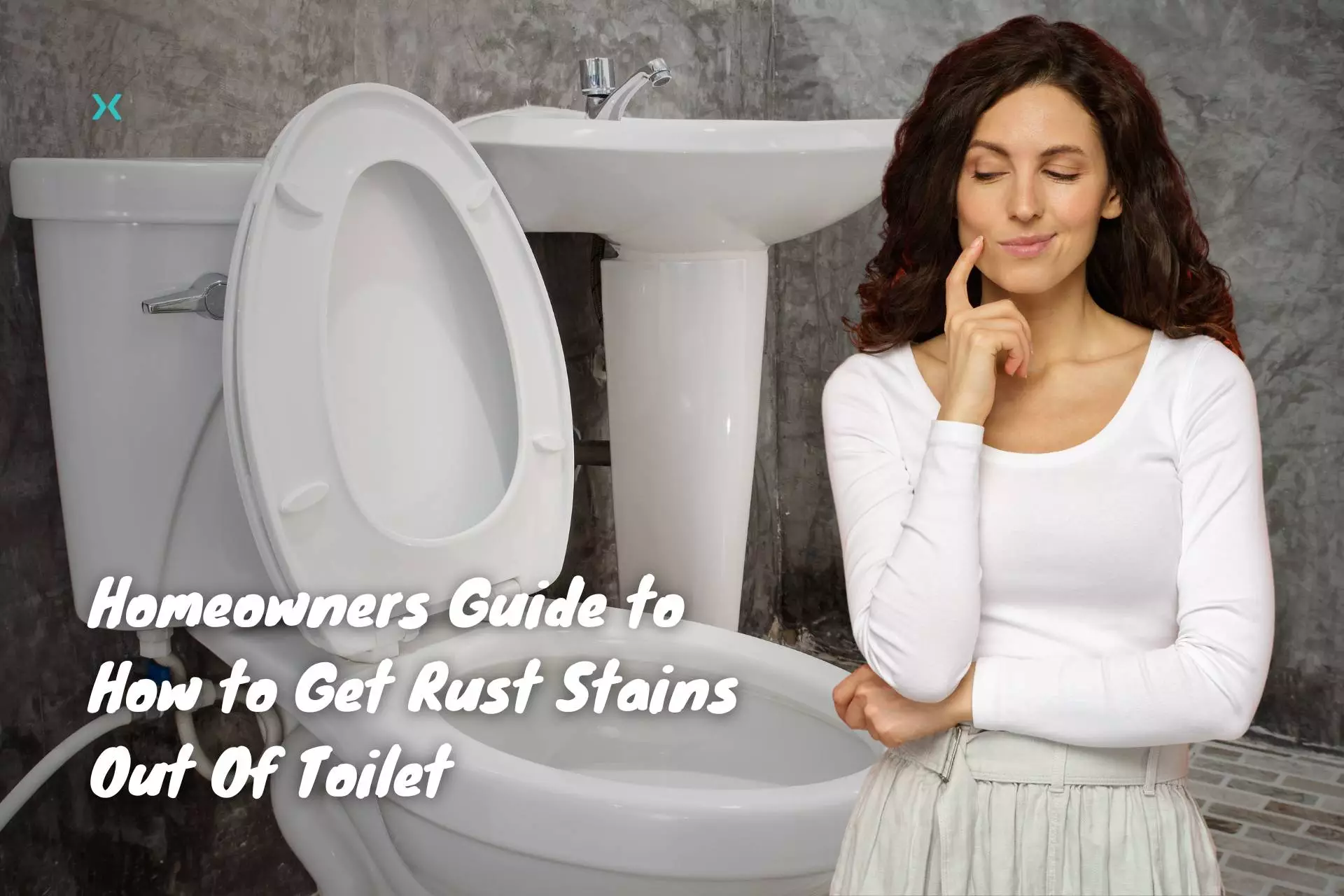💧 Homeowners Guide on How to Get Rust Stains Out Of Toilet
Rust stains can be some of the most intimidating problems to come across as a homeowner. Not only are they quite unsightly, but they are also very difficult to remove!
While it may seem daunting, there’s no shortage of methods to remove rust stains from your toilet if you know what you’re doing.
In this article, we’ll discuss the causes of toilet bowl stains, identify different types of stains, and explore natural and chemical methods to rid your toilet bowl of those pesky stains.
Table of Contents
💧 Understanding Rust Stains in Your Toilet
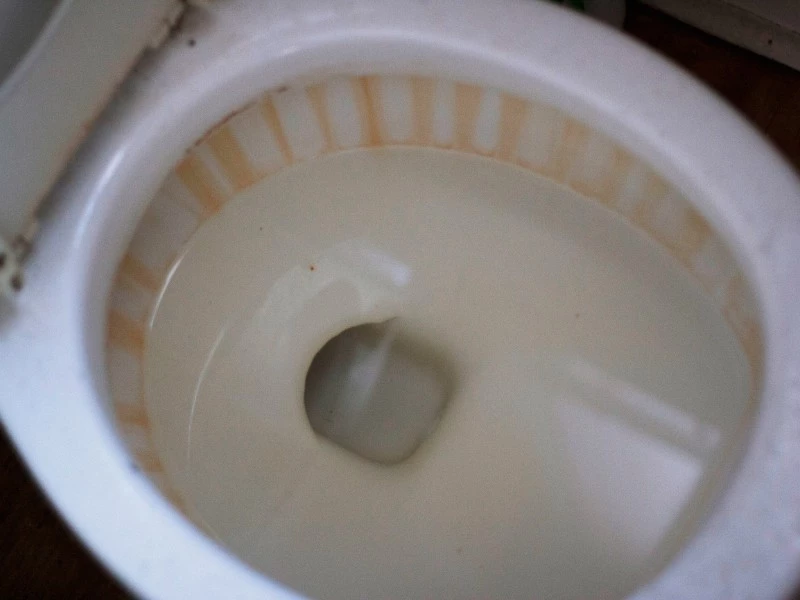
Rust stains are a common problem in many households.
In fact, if your toilet is fed with iron-rich water, rust stains are near inevitable.
Iron and oxygen in the water react to form rust, which can leave unsightly stains on your toilet bowl.
In addition to iron-rich water, other causes of rust stains include old pipes, iron pipes, and hard water.
❌ Causes of Rust Stains
Iron in your water supply can be present in two forms: clear water iron and red water iron.
Clear water iron or ferrous iron is not visible in your water but will cling to surfaces over time, resulting in rust stains.
Red water iron or ferric iron, on the other hand, is visible in your water and can cause more significant rust stains.
Aside from iron, sediment and hard water can also cause rust stains.
Sediment can form when pipes corrode, and hard water can cause mineral buildup, both of which can lead to rust stains in your toilet.
❌ Identifying Rust Stains vs. Other Stains
Before attempting to remove any stain from your toilet bowl, it’s important to identify what type of stain it is.
Rust stains typically appear as brown or reddish-brown stains.
However, other types of stains, such as mineral stains or organic stains, can have a similar appearance.
To identify a rust stain, add a few drops of vinegar to the stain.
If the stain dissolves or lightens, it is likely a rust stain.
However, if the stain does not react to vinegar, it may be a different type of stain, and you’ll likely need a different cleaning method.
📗 Related Reading: How to Remove Hard Water Stains Quickly and Easily
❌ How Rust Stains Can Be Prevented
Though you’re probably only thinking of the here and now, it’s also important you start thinking about the future.
With a little bit of effort and some preventative measures, you can keep your toilet and plumbing system looking clean and fresh.
Preventing rust stains in your toilet can be done by installing a water filtration system or water softener.
These systems can help remove iron and other minerals from your water supply, which can prevent rust stains from forming in your toilet.
Additionally, regular cleaning and maintenance of your toilet can help prevent rust stains from becoming a problem.
💧 Preparing to Remove Rust Stains
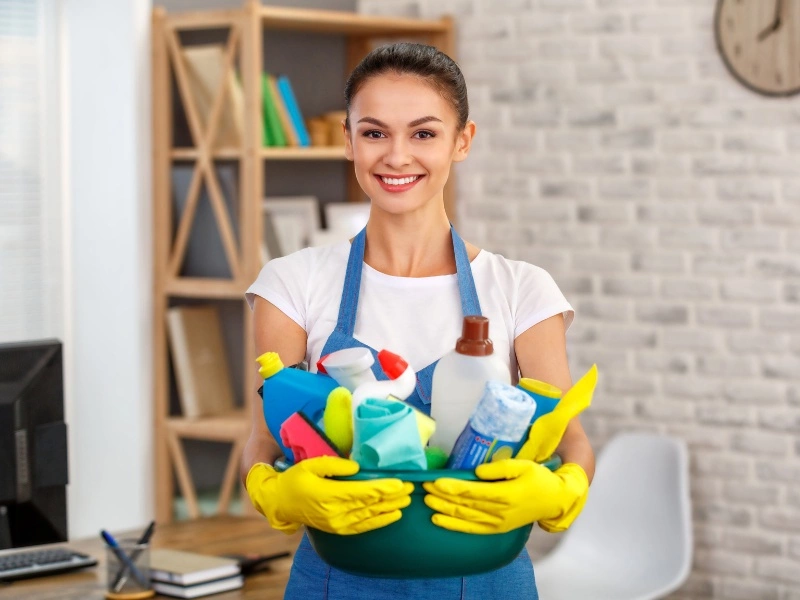
🧰 Gathering Necessary Supplies
To effectively remove stains, you will need to gather the following supplies:
- Gloves
- Mask
- Toilet brush
Method 1
- White vinegar
- Baking soda
Method 2 and 3
- Lemon juice
- Salt (only method 2)
- Borax (only method 3)
These supplies are all readily available at most grocery or hardware stores.
Additionally, if you choose not to go with a natural method, you can purchase chemical cleaners specifically designed for rust stain removal at these locations.
Be sure to read the labels carefully and follow all instructions.
🧰 Why Safety Gear?
When dealing with chemicals, it’s important to take safety precautions to protect yourself and your home.
Before beginning the rust stain removal process, be sure to:
- Wear gloves to protect your skin from harsh chemicals.
- Wear a mask to avoid inhaling any harmful fumes.
- Protect your eyes by wearing goggles.
- Ensure the area is well-ventilated to prevent the buildup of fumes.
It’s also a good idea to wear old clothes that you don’t mind getting stained or ruined.
Rust stains can be difficult to remove from clothing, so it’s best to take precautions when you clean rust stains to avoid any accidental spills or splatters.
💧 Natural Rust Stain Removal Methods
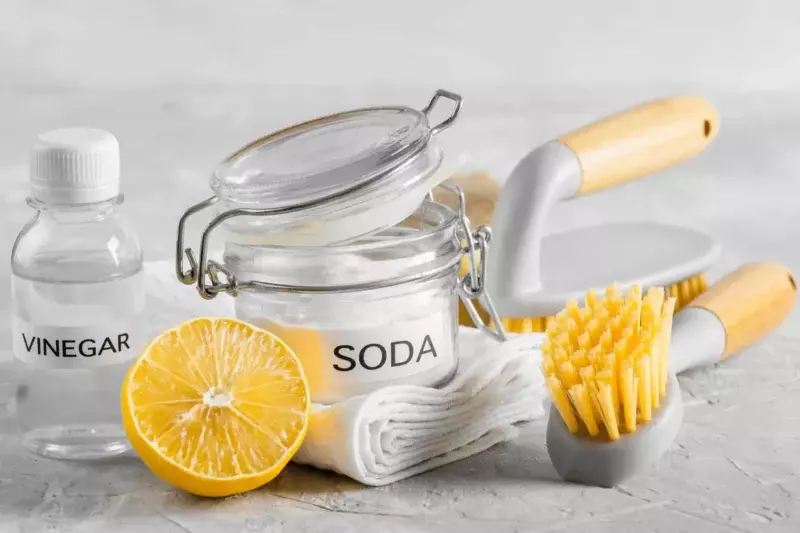
If you prefer to use natural cleaning methods, there are a few effective options for removing rust stains from your toilet.
Not only are these methods eco-friendly, but they are also affordable and easy to make.
🧰 Using Vinegar and Baking Soda
Vinegar and baking soda are two common household items that are known for their cleaning abilities.
When combined, they create a powerful cleaning solution that can remove even the toughest of stubborn stains.
To start, mix equal parts vinegar and baking soda until it forms a paste.
The paste should have a thick consistency that is easy to apply.
Once you have made the paste, apply it directly to the rust stain and let it sit for 15-30 minutes.
During this time, the solution will work to break down the rust and make it easier to remove.
Then it’s scrubbing time – keep at it until your problem’s gone. (Though you may need to repeat this process a few times if your stains are particularly stubborn.)
🧰 Lemon Juice and Salt Method
Lemon juice and salt are two more natural ingredients that can be used to remove rust stains effectively.
It’s one of the easiest to put together and best for smaller stains.
To make the solution, mix ¼ cup of lemon juice with ½ cup of salt to form a paste.
The acidity of the lemon juice will work to dissolve the rust, while the salt acts as a gentle abrasive to help scrub it away.
Apply the paste to the stain and let it sit for 15-30 minutes, then scrub the stain with your toilet brush.
🧰 Borax and Lemon Juice Solution
Borax is a natural mineral that is often used in cleaning products due to its ability to break down dirt and grime.
When combined with lemon juice, it creates a powerful solution that can remove stubborn rust stains from your toilet. This makes it particularly effective for larger stains.
To start, mix ½ cup of borax with lemon juice to form a paste.
Apply the paste to the stain and let it sit for 15-30 minutes.
During this time, the solution will work to break down the rust and make it easier to remove.
Then, you can scrub the stain with a brush and flush the toilet.
💧Chemical Rust Stain Removal Methods
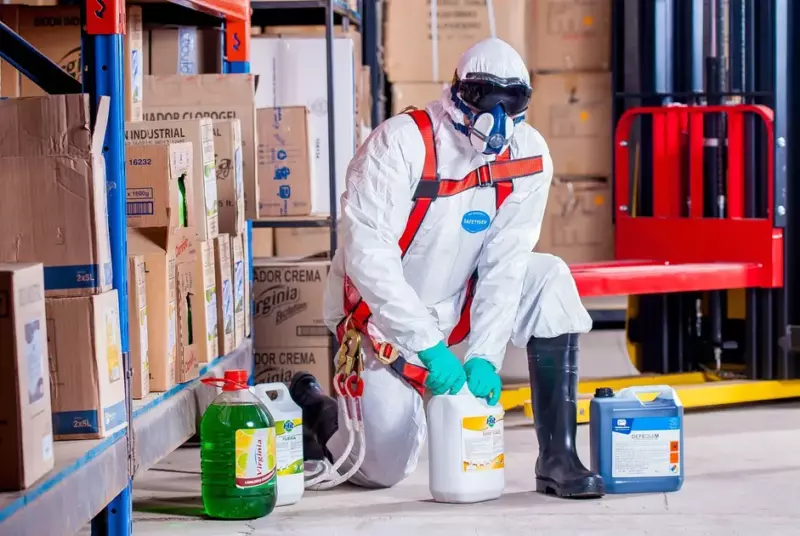
If natural rust stain removal methods are not effective or not appealing to you, you can use chemical cleaners designed specifically to get the job done.
🧰 Selecting the Right Chemical Cleaner
When selecting a chemical cleaner, choose one designed for rust stain removal, as some cleaners may not be effective on rust stains.
The best choices will be those based around citric acid powder or oxalic acid, but you’ll have to check the one you buy to make sure it’ll work for you.
🧰 Applying Commercial Rust Removers
Follow the instructions on the cleaner, and as we mentioned earlier, take necessary safety precautions, such as wearing gloves, goggles, and a mask.
Chemicals can quickly be dangerous when not used appropriately.
🧰 Tips for Using Chemical Cleaners Effectively
- Ensure that the cleaner sits on the stain for the recommended amount of time.
- Apply the cleaner under the rim of the bowl, where rust stains may accumulate.
- Flush the toilet a few times to remove any remaining cleaner.
💧 Final Thoughts

Rust stains can be unsightly and an annoyance, but they’re no match for a determined homeowner.
With just the right combination of a few household items, and a little elbow grease, you can clear your toilet bowl of orange rust stains and get back to a pretty sight.
If you’re having trouble cleaning your toilet tank or bowl or aren’t confident doing it yourself, Phyxter Home Services can help.
You can find us at a variety of locations across North America, so if you need assistance we can be there right away.
Have any other household questions? We’ve got the answers! Look through our other plumbing articles for more advice.
📗 Related Reading: DIY Guide to 15 Common Plumbing Problems & Solutions

